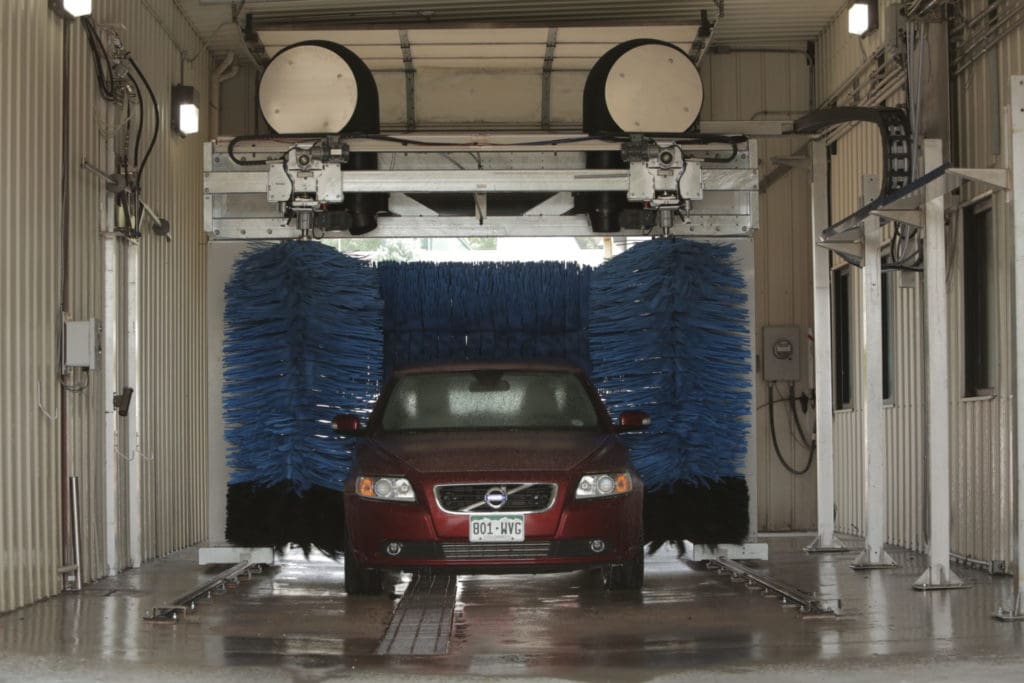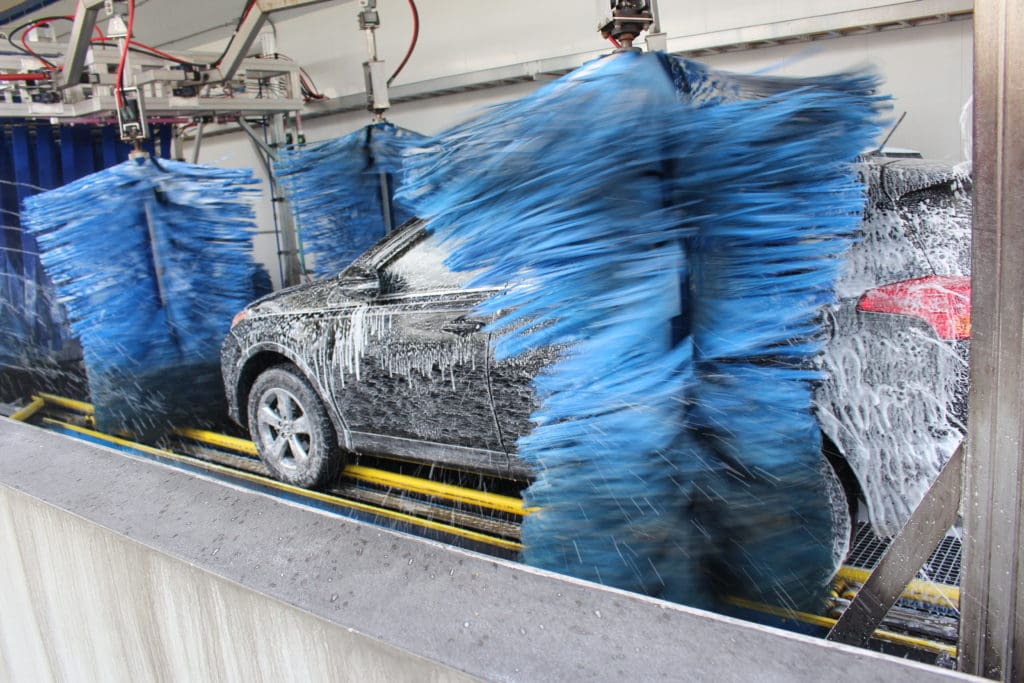In-Bay Automatic Vs. Tunnel Wash
If you are looking to start a car wash business or upgrade your existing car wash, you are probably researching the differences between in-bay automatic car washes and tunnel car washes. Each has its own advantages and challenges and selecting the right one for you will depend on your specific circumstances. Let’s start by defining each type of car wash, and then get into the pros and cons of each.
In-Bay Automatic Wash
In-bay automatic is the typical car wash found at a gas station or convenience store. Customers decide what kind of car wash they want, drive into the bay, place the car in park and stay in the car while the machine washes around their car.

Advantages
- This type of car wash typically requires less space than a tunnel car wash, so it’s a perfect choice if you have space constraints. Reliable Plus proudly sells products from Mark VIII, who offer a line of car washes specifically designed with space considerations in mind. Their Softwash DF® features onboard chemical application systems as well as onboard dryers to reduce space requirements and bay length.
- There are many ways to customize these car washes to deliver exactly what your customer is looking for. You have your choice of soft-touch car washes, touch-free car washes, or a combination option where the customer gets to choose the car wash type.
- Adding an in-bay automatic to your gas station or convenience store adds a valuable service to your business. Get tips on running a successful convenience store car wash here.
- In-bay automatics are generally more cost-effective to install than tunnel systems.
- These systems don’t require staff members onsite to keep the machine up and running, so are relatively inexpensive to run.
Challenges
- These car washes have a much lower throughput per hour (10-15 cars) than a tunnel system. This is because they can only wash one car at a time.
- Because of the slower throughput, lines can easily build up. While these car washes do have a smaller footprint than tunnel systems, line management needs to be a consideration.
Tunnel Wash
Cars drive onto a conveyor system and the car is pulled through the tunnel. Customers may remain in or exit the car, depending on what type of tunnel car wash it is. The various steps and options, like rinses or foaming waxes, are performed at stations along the way.

There are a few different types of tunnel car washes to choose from:
Full-Service Tunnel: Offers both exterior and interior cleaning of your vehicle. Usually done by a concierge or employee of the location.
Express Tunnel: Customer stays in their vehicle for an exterior wash.
Flex Serve Tunnel: A combination of full-service and express that leaves it up to the customer to decide.
Advantages
- Tunnel car washes can offer more bells and whistles than an in-bay automatic or self-service car wash.
- The car wash itself can be a selling point for customers and their families. Many people enjoy watching the car go through the car wash and watching all the stations light up as various services are performed.
- Tunnel washes have a much higher vehicle throughput than other car washes. As mentioned before, the in-bay automatic has a per hour vehicle throughput of 10-15 cars, while a tunnel car wash ranges from 40-180 cars per hour depending on the tunnel size.
- Because of this higher vehicle throughput, waiting times and lines are decreased and customer satisfaction is increased.
- Higher vehicle throughput also helps the vehicle wash owner recoup their investment faster.
- There is an opportunity to sell extra products when the customers come in to watch their car and pay for their car wash. Think toys, books, puzzle books, air fresheners, candy, etc. as well as frequent buyer punch cards and loyalty programs.
Challenges
- Tunnel systems can require a larger up-front investment than an in-bay or self-service car wash. The conveyors, installation, and other equipment costs make it a much higher initial investment.
- These car washes typically use brushes rather than a touch-free spray, which increases the chance of scratches and damage to vehicles.
- Tunnel washes require more staff, particularly if it’s a full-service wash. This means hiring and managing more people than if you have an in-bay or self-service car wash.
Rely On Reliable Plus
Making a decision about the type of car wash to install is not one to take lightly. Our team of experts can help you make the right decision about what makes sense for your unique situation. Get in touch today!
